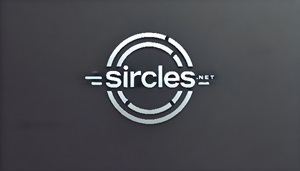Officially, a domain name is an identification 'string' (i.e. an alphanumeric sequence) that defines a realm of administrative control within the Internet. This means that a domain name represents a unique pattern of letters and numbers corresponding to a subsection of the Domain Naming System with which the owner can associate IP addresses of resources and publish those resources using URL (unique resource locator) links within his or her domain.
Domain names are formed by the rules and procedures of the Domain Name System (DNS). Any name registered in the DNS is a domain name. A domain name is an alphanumeric string followed by a suffix (such as .com or .co.uk) denoting geographical or purposeful allocation of that domain.
Getting a domain name involves registering the name you want with an organisation called ICANN through a domain name registrar which you can find online and who will register your domain for you and give you control over that domain via a website or portal.
For example, if you choose a name like "oooba.com", you must go to a registrar, pay a registration fee that costs from £7 to £10000 for that name. The registrar will confirm that the name you want is available.
Domain registration is the process of registering a domain name, which identifies one or more IP addresses with a name that is easier to remember and use in URLs to identify particular Web pages.
The person or business that registers the domain name is called the domain name registrant, which in this case would be you.
Domain names are formed by the rules and procedures of the Domain Name System (DNS). Any name registered in the DNS is a domain name. A domain name is an alphanumeric string followed by a suffix (such as .com or .co.uk) denoting geographical or purposeful allocation of that domain.
Getting a domain name involves registering the name you want with an organisation called ICANN through a domain name registrar which you can find online and who will register your domain for you and give you control over that domain via a website or portal.
For example, if you choose a name like "oooba.com", you must go to a registrar, pay a registration fee that costs from £7 to £10000 for that name. The registrar will confirm that the name you want is available.
Domain registration is the process of registering a domain name, which identifies one or more IP addresses with a name that is easier to remember and use in URLs to identify particular Web pages.
The person or business that registers the domain name is called the domain name registrant, which in this case would be you.
0


